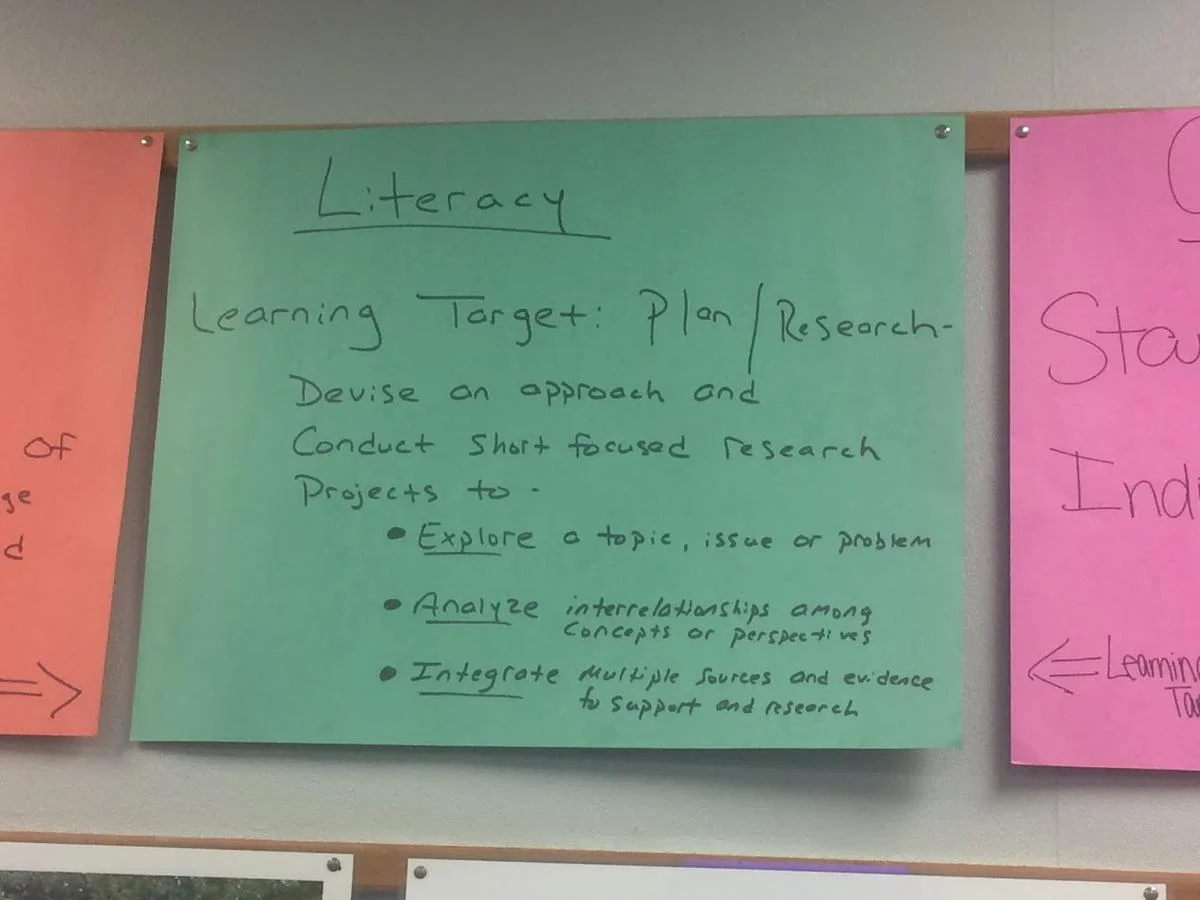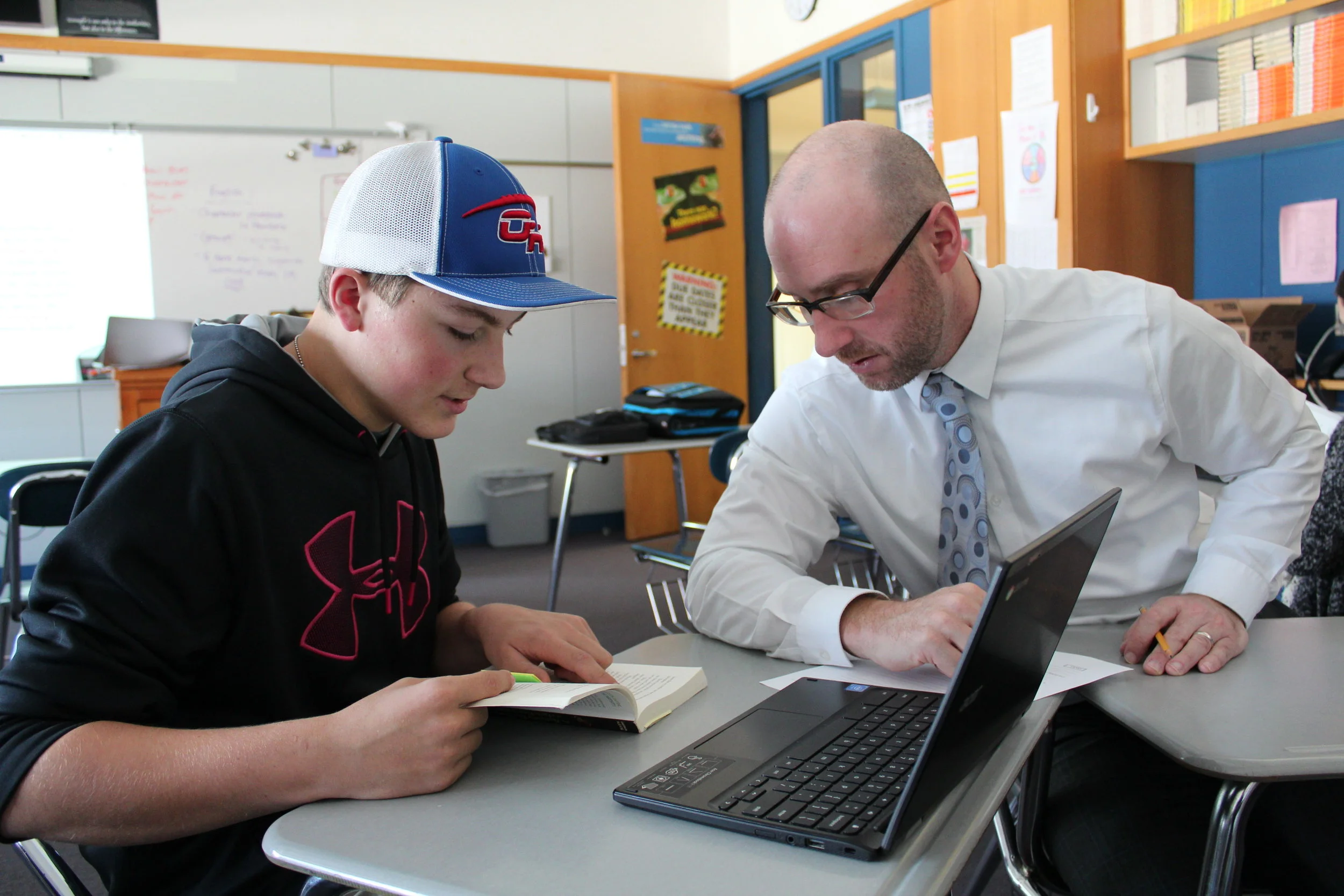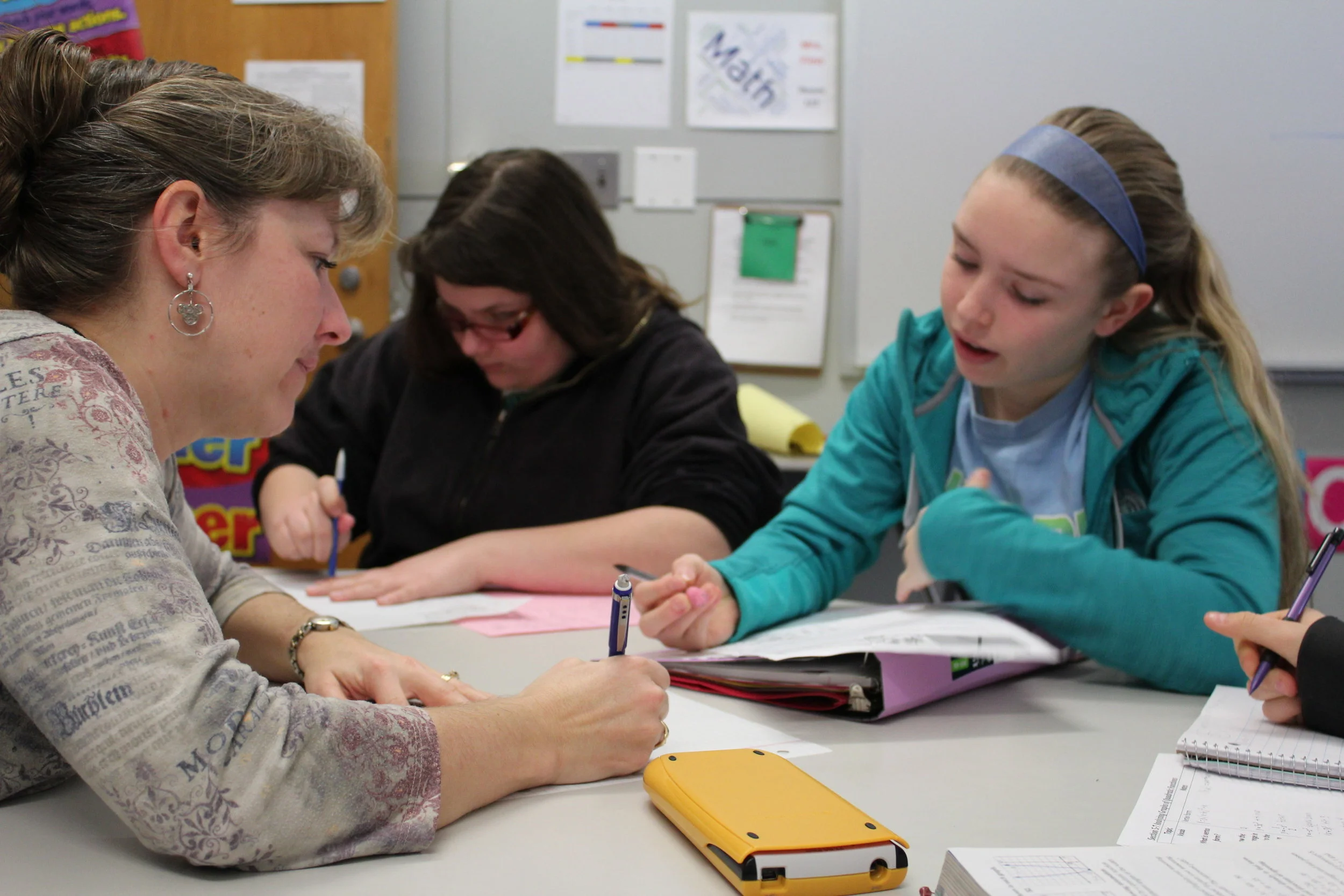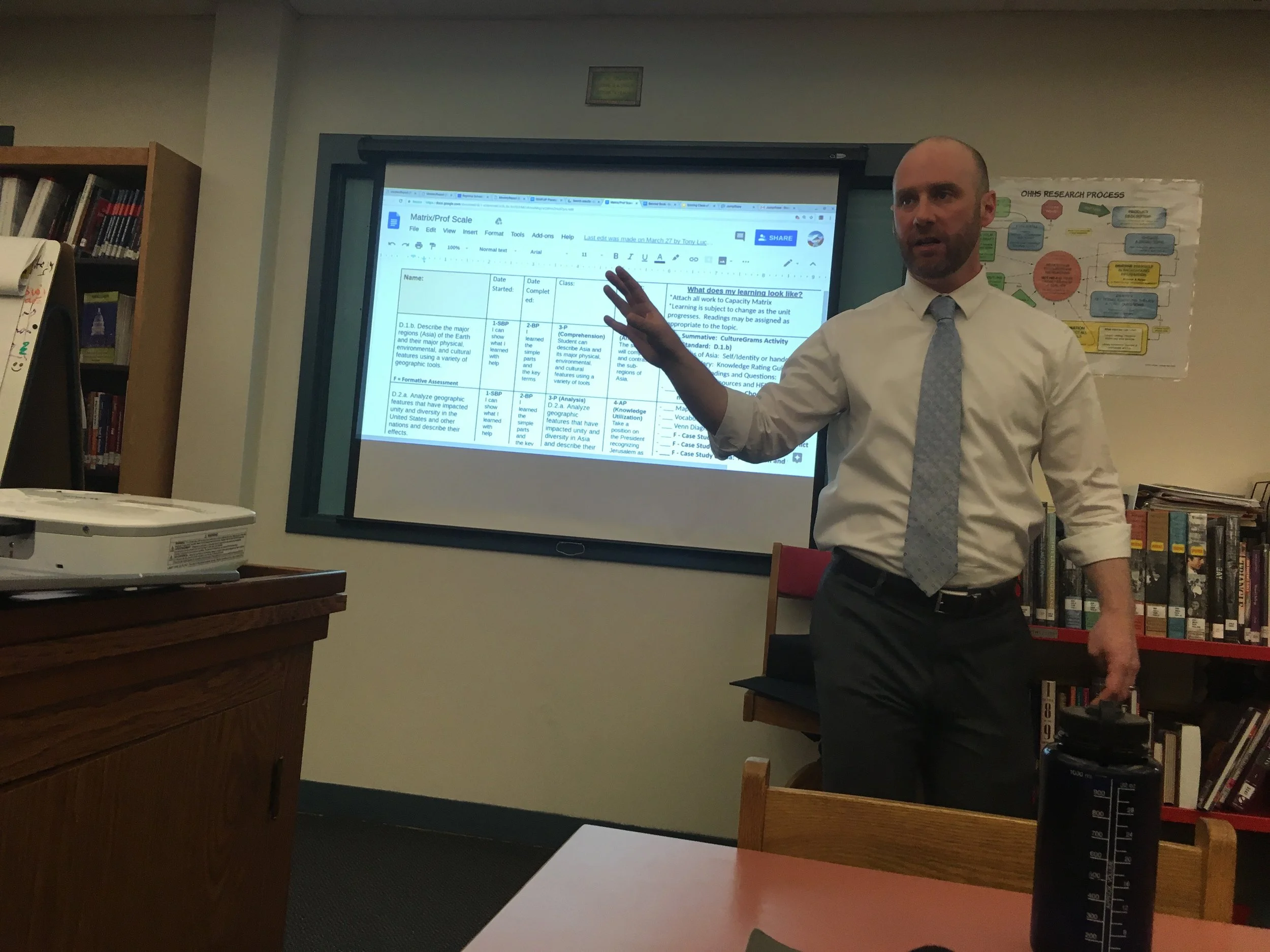LESSONS FROM OAK HILL
In the 2017-18 school year, I embarked on a year-long project to explore the changing landscape of education in Maine as schools prepare students to reach the state's new "proficiency-based" graduation requirements. Over the course of the school year, I looked at the often controversial new initiative through the eyes of parents, students, administrators and teachers on-the-ground inside a small, rural school district.
A history of why Maine decided to adopt a revolutionary new kind of diploma -- and why many school officials are still worried about the transition five years later.
Our first dispatch from the small, rural Oak Hill High School -- where "proficiency-based" education has led to dramatic change inside the classroom, but has also led to pushback and worries across the state.
To start our series, we headed to the place in Oak Hill where students are actually getting the freedom and choice that many proponents of "proficiency-based education" have promised. And it's not in English or math class. It's gym.
In many Maine schools, reaching new "proficiency-based" diplomas means requiring students to meet standards they've never had to hit before. At Oak Hill, that's led to an "all-hands-on-deck" approach to try to get every student to graduation.
While Oak Hill has taken steps to try to catch students faster and get them to "proficiency," the story isn't true across the state. Some educators are still worried that a large percentage of students may not be able to make the grade by the time proficiency-based diplomas are implemented in Maine in 2021.
A deep dive into ‘student-paced,’ or ‘mass-customized learning.’ It’s a new educational style that’s supposed to use technology to let every kid learn at their own pace. In some classrooms, though, the reality was far more chaotic than teachers could have imagined.
Across Maine, schools have attempted to get rid of traditional ‘A through F’ grading as part of the move to proficiency-based education. The shift has led to serious pushback, though, with many parents worried that the new grades and transcripts won’t adequately represent what their children know.
Another new piece of "proficiency-based education” has been a move away from the traditional tests and quizzes that you might remember from school, in place of larger, more collaborative projects. While some advocates and schools are in favor of the changes, some are worried that the new system could mean Maine graduates might struggle with high-stakes tests like the SAT.
The last story in our year-long series looked at how Oak Hill High School managed in its first year in the new system. By the end of the year, the school had dealt with some serious troubles, including some traumatic events, that left students and teachers barely able to focus on academics. Yet through all of that, the school was still optimistic about continuing under the new educational system.








